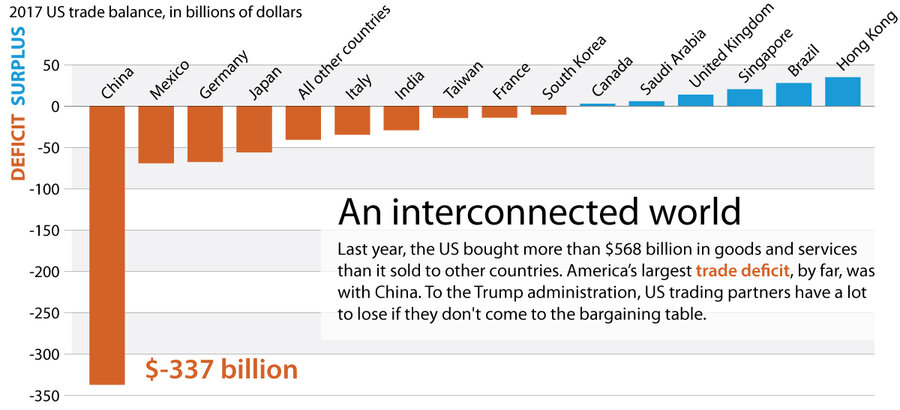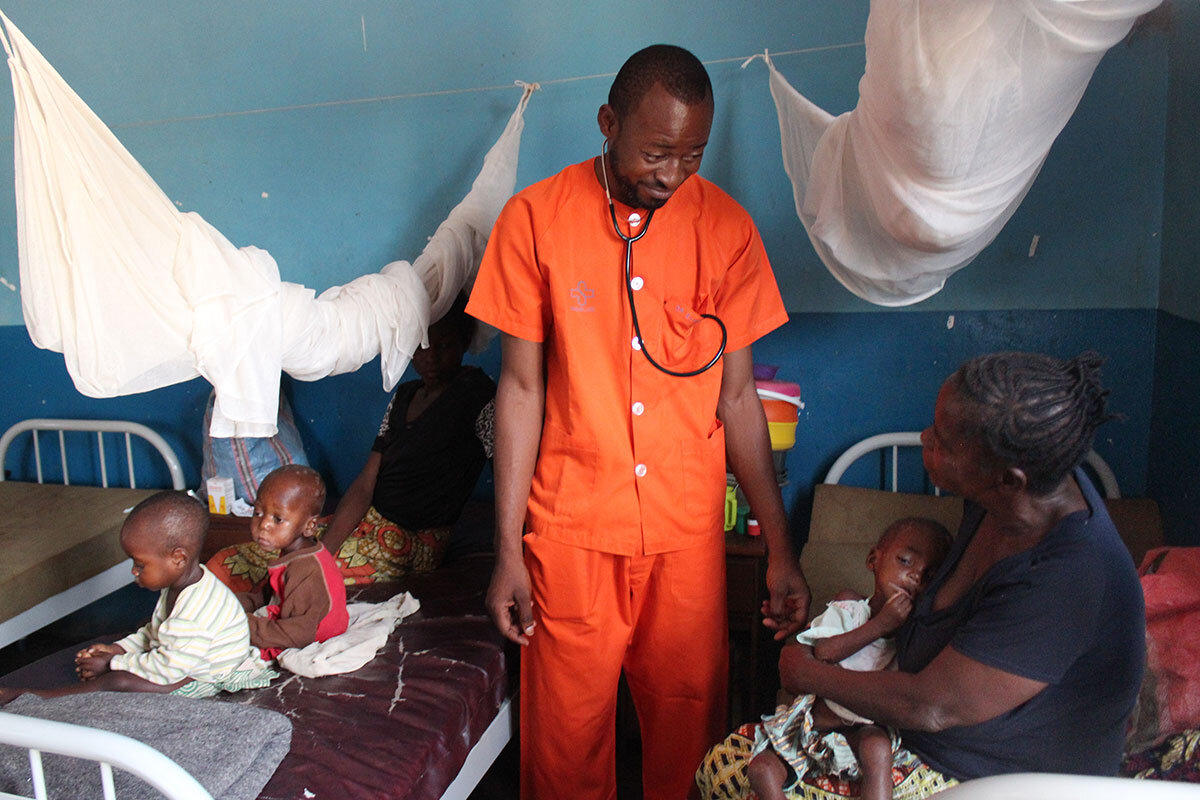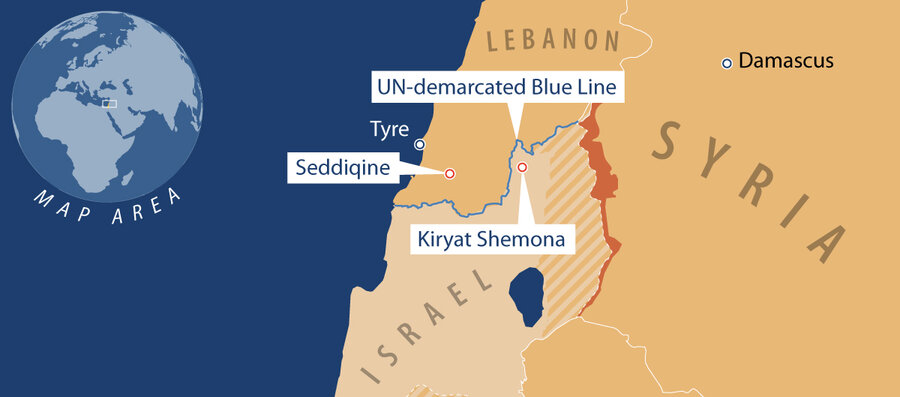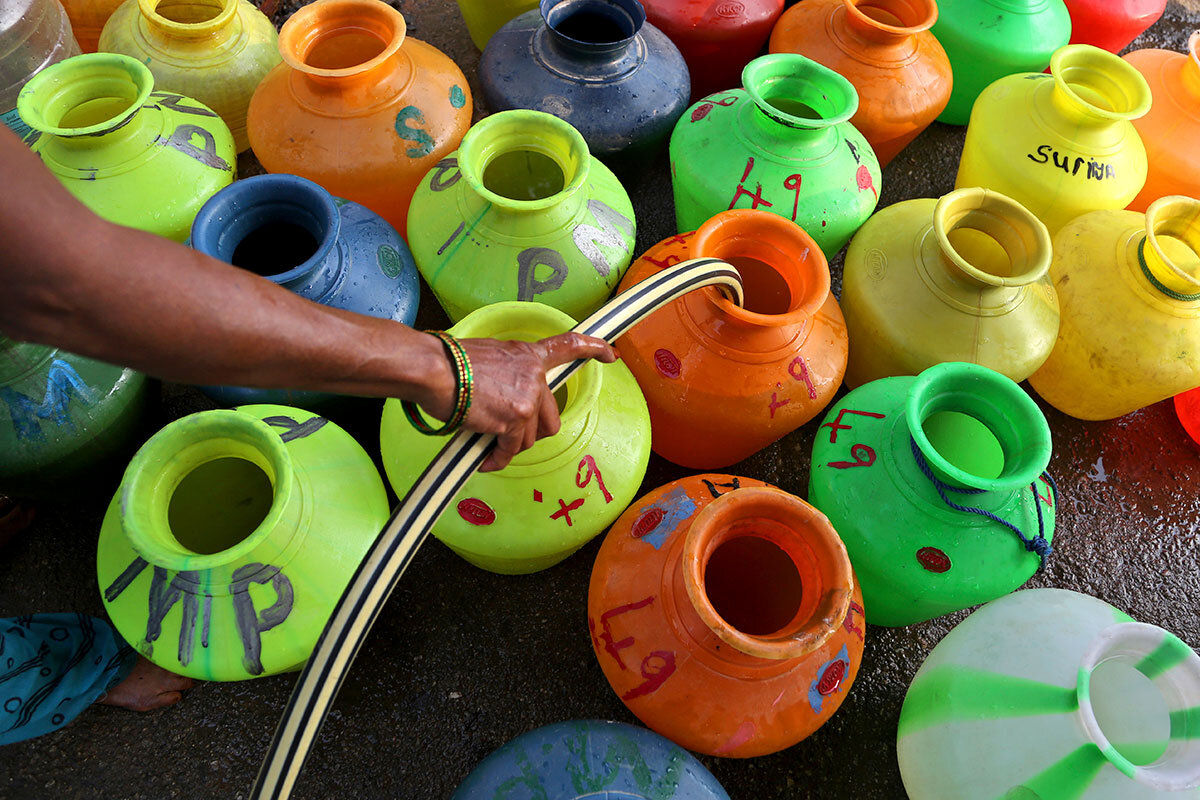With President Trump announcing new trade penalties against China, fear of a trade war is growing. But it would take a lot of escalation for that to become a reality.
Monitor Daily Podcast
- Follow us:
- Apple Podcasts
- Spotify
- RSS Feed
- Download
 Yvonne Zipp
Yvonne Zipp
Picture a scientist. Lab coat or safety goggles? Microscope or telescope? Wild hair or no hair?
I’ve been picturing scientists a lot this week, thanks to a study in which researchers looked at 50 years of children drawing scientists.
About 3 in 10 students draw pictures of women. That’s good news, researcher David Miller says: It’s the highest percentage it’s been in five decades.
In 1983, when Dr. Miller looked at about 5,000 children’s drawings done between 1967 to 1977, less than 1 percent of the students drew women. And all 28 of those artists were girls. Since then, 28 percent of children routinely draw women. The Draw-a-Scientist Test shows how stereotypes can change over time.
What’s changed? Not only are there more women working in STEM fields, they are also more visible, from efforts like 500 Women Scientists to the women computer scientists and their allies who, after a computer security conference announced just one female speaker out of 22, planned an alternate conference for the same day.
Take today’s Google Doodle. Katsuko Saruhashi was the first woman in Japan to earn a PhD in chemistry and studied radioactive fallout in the Pacific from US nuclear testing. (The Saruhashi Prize now is given to top natural scientists who are women.) NASA mathematician Katherine Johnson shot to such fame after “Hidden Figures” that toymaker Mattel modeled a doll after her. Marjory Stoneman Douglas is now also a household name, for tragic reasons, reviving interest in the conservationist’s work to save the Florida Everglades.
But my favorite picture is one I have not seen. “I still find myself choking up when I show it,” the BBC’s Quentin Cooper told New Scientist in 2011. Students drew a picture, got to meet a real scientist, and then were asked to draw another picture. One girl’s first picture was a man in a lab coat. Her second was of a smiling woman holding a test tube.
The picture’s caption was one word: “Me.”
Now, here are our five stories for today.












